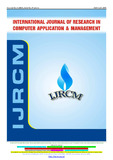| dc.description.abstract | All over the world, reports from different organizations say that people living with disabilities (PLWDs) are underemployed. In Kenya besides many organizations
lobbying for the increased employment of PLWDs, amplified by the constitution that at least 5% elective positions must be spared for (PLWDs) there is lower rate
of employment. For example the entire cabinet and parastatal secretaries of about twenty six people only one is disabled. The empirical review has pointed out
that education has affected negatively on people with disability employment; the employer stereotype also has made it difficult for PLWDs to attain jobs. The
literature revealed that the organizational culture is of dare consequences as it may work against the advantage of the disabled, also inaccessibility inhibit
Disabled employees from accessing organizational facilities. The employer perception in the literature shows that employers view people living with disabilities as
costly. The objective of the study investigated the challenges facing employment opportunities for PLWDs while the specific objectives investigated; the effect of
education on employment opportunities for People Living With Disability, to find out the effect of organizational culture on employment opportunities for People
Living With Disability, to investigate the effect of employer stereotype on employment opportunities for People Living With Disability, and to investigate the effect
of employer perception on employment opportunities for People Living With Disability. The target population was all People Living with Disability employees in
selected Universities in Kenya and associations of People Living with Disabilities in Kenya. The sample size was all employees living with Disabilities and all
members of the association of People Living with Disabilities in Murang’a County. The findings were presented in tabular form. Both Descriptive statistics i.e.
mean standard deviation, skewness, kurtosis and inferential statistics i.e. Correlation, Regression, ANOVA models were used to analyze the findings. The findings
showed that People Living with Disabilities do not secure employment opportunities due to: lack of required Skills; lack of available accessible organizational
facilities; stringent organizational culture; negative employee stereotype; and negative employer perception towards employees. The study recommended that
for people living with disabilities to increase their employment opportunities, their educational level, working experience have to be enhanced. The organizational
facilities have to be made available and accessible to PLWDs. The organizational culture has to be changed to embrace acceptable performance not high
performance, be less bureaucratic, and equal measures in performance have to be changed to favor customized to individual nature of being. | en_US |

